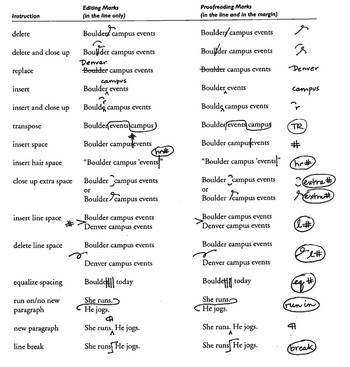"Nit-Picking Criticism"
About a month ago, my students started using the class blogosphere to post peer-critique comments. Their first task was to comment on three longer pieces written by their classmates. Generally speaking, it went very well. They enjoyed commenting and seemed to have learned a bit more about writing as a process. However, their very first responses reminded me of what Donald Graves calls "nit-picking criticism." They focused on pointing out spelling mistakes and grammatical errors. They talked about sentence structure and commented on punctuation.
Needless to say, I was initially a bit disappointed. I wanted them to engage with ideas, to respond as readers. Instead, it occurred to me, they responded as teachers. I realized fairly quickly that they felt very safe pointing out the most obvious errors and that most of them associate a graded piece of writing with a lot of this:
Initially, their work reminded me of the experiences described by Donald Graves:
How well I recall my first attempt to initiate peer response in my seventh-grade classroom. I simply said, "Okay, I want you to exchange papers and respond to each other's work. Listen carefully, take the paper back, and return to your writing." What I got was a massive blood-letting: first wails, then silence. My students went into shock. Their responses were not helpful. At the time I couldn't understand why peer-response didn't work. In retrospect, I realize that they responded to each other as I responded to them - with nit-picking criticism. My approach in those days resembled an old-time, New England hell, fire, and brimstone method; I tried to stamp out the sin of error. (Graves, Donald H. A Fresh Look at Writing.)
When I noticed a lot of "nit-picking criticism," I felt it was time to stop and discuss writing. We looked at a sample piece of writing and I asked them to comment on it. Immediately, they focused on spelling and grammar. Then, we talked about purpose, we talked about voice, we talked about constructing an argument or a point of view and defending it. Gradually, they began to realize that spelling wasn't really the problem, that the essay we were looking at failed them as readers, that despite an engaging beginning, it failed to grab their attention, it failed to speak to them.
As we continue peer-editing, I am beginning to see that their responses are changing. I am beginning to see that they are slowly beginning to respond to texts written by their classmates as readers.
I am beginning to see more of this:
I love your introduction!!! I can really relate to and it makes me want to read on! I also like your balancing of the negative and positive affects of technology. This is a great essay! Good use of quotes as well; it helped a lot with the connection between the story and the essay.
First of all I would like to commend you on the emotion in this essay ... your essay has this great quality! Good job. This really draws the readers attention and makes a fun, interesting essay!
One thing I loved about your essay was the start to your introductory paragraph, how you described the scene of war, it made me want to read more.
there were very good points that made me think. Very good!!
There are more examples, but I think these show very well what is gradually beginning to happen. I am beginning to see more readerly comments.
I should also point out that these readerly comments increase when students write in response to what interests them. When they have to comment on three pieces written in response to the same prompt, the quality of their comments diminishes rather quickly. When, however, they respond to entries that reflect the author's genuine interest in a specific topic, the peer-editors seem more engaged. They begin to see their classmates as authors, not a group of students forced to respond to the same question, but a collection of individuals, each with a blog and a specific point of view, each with a voice and ideas to share. When that happens, they want to respond to the work of their peers because it is genuine, they want to help each other express their ideas.
Donald Graves: "You enable the students to become an effective writing community when they all help each other express what is important to them." When they are given that chance, reading each other's work loses its official title of peer-critique and becomes, quite simply, readerly involvement. When they become engaged as readers and thinkers, you end up reading a lot of this:
you really made me interested in this topic because I never thought about it this way. your writing is really good because i didn;t feel like i was reading a long essay. I wnted to read more. I thought your piece was very good, and you really made people think twice about your topic. Before, I totally disagreed, and thought that you shouldn't spay or neuter your dog, but now you made me think about spaying and neutering your dog. You had very good detail and a very good argument.
